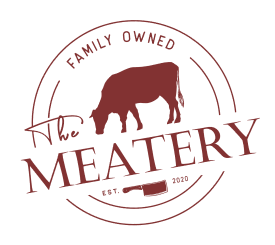Struggling to figure out dinner plans? Tired of the same, boring meals every week? Well fear not as this blog contains one of the most flavorful, easy to make Wagyu Beef recipes one could ask for! Take an adventure as we learn about what makes Wagyu Beef so special, and how you can make an incredible meal at home that the whole family will love!
Definition and Origin of Wagyu Beef
Wagyu beef is a highly prized, luxurious type of beef originating from Japan. The word "wagyu" translates literally to "Japanese cow," referring specifically to several breeds of cattle known for their genetic predisposition to develop intense marbling. Marbling describes the fine streaks of intramuscular fat within the meat, significantly contributing to wagyu beef's renowned flavor, exceptional tenderness, and distinctive melt-in-your-mouth texture.
There are four primary breeds of wagyu cattle:
-
Japanese Black (Kuroge Washu): Most widely produced, making up approximately 90% of all wagyu beef.
-
Japanese Brown (Akage Washu): Known for leaner meat, with a mildly sweet flavor.
-
Japanese Polled (Mukaku Washu): Least common, distinctive for being naturally hornless.
-
Japanese Shorthorn (Nihon Tankaku Washu): Primarily raised in northern Japan, known for its lean yet flavorful meat.
The history of wagyu cattle dates back to the early 19th century in the Kobe region of Japan, where careful breeding and specialized feeding practices were developed. These rigorous methods continue today, meticulously controlling cattle diets, exercise, and living conditions to consistently produce beef of exceptional quality.
Cooking and Preparation Tips
Due to wagyu beef’s uniquely delicate texture and high fat content, careful cooking techniques are essential:
-
Bring to Room Temperature: Remove wagyu beef from the refrigerator at least 30 minutes before cooking. This prevents uneven cooking and helps achieve the desired doneness.
-
Dry Heat Methods: Grill, broil, or pan-sear wagyu beef to best render its fat and develop a flavorful crust, preserving its juicy tenderness.
-
Avoid Overcooking: Aim for an internal temperature between 120°F to 130°F for rare to medium-rare doneness. Wagyu’s high fat content means it can quickly become tough if overcooked.
-
Resting Period: Let the beef rest for 5 to 10 minutes post-cooking. This redistributes juices throughout the meat, maximizing tenderness and enhancing flavor.
Delicious Wagyu Beef Over Rice Recipe
For an exquisite yet simple way to enjoy wagyu, here is a savory wagyu beef rice bowl recipe that anyone can make!
Ingredients:
-
1 pound ground Wagyu beef
-
3 tablespoons soy sauce
-
2 tablespoons brown sugar
-
2 tablespoons sake (Japanese rice wine)
-
2 tablespoons mirin (sweet cooking wine)
-
1 tablespoon grated fresh ginger
-
2 cloves garlic, minced
-
4 green onions, thinly sliced
-
4 cups cooked white rice
-
Sesame seeds (optional, for garnish)
Instructions:
-
Heat a large skillet over medium-high heat. Add ground Wagyu beef, cooking until browned, stirring frequently.
-
Add soy sauce, sugar, sake, mirin, grated ginger, and garlic while stirring thoroughly to allow the flavors to meld.
-
Simmer gently for about 5-7 minutes, letting the sauce reduce slightly.
-
Serve over bowls of hot, steamed white rice. Top with green onions and sesame seeds if desired, enhancing both texture and looks of the dish.
Health Benefits of Wagyu Beef
Despite its notable fat content, wagyu beef boasts several potential health benefits:
-
Heart-Healthy Fats: Rich in monounsaturated fats, wagyu can help lower LDL (bad) cholesterol and boost HDL (good) cholesterol.
-
Conjugated Linoleic Acid (CLA): Contains higher amounts of CLA, linked to weight management, reduced heart disease risks, and enhanced immune system function.
-
Omega-3 and Omega-6 Fatty Acids: These essential fats support brain health, reduce inflammation, and contribute positively to cardiovascular wellness.
-
Excellent Protein Source: Provides high-quality protein, essential for tissue repair, muscle growth, and immune support.
-
Vitamins and Minerals: Wagyu beef is abundant in essential nutrients such as Vitamin B12, iron, zinc, and selenium, vital for overall health.
For a deeper dive into what makes Wagyu so marbled, check out our other blog on the science behind wagyu!
Wagyu Beef vs. Other Beef Varieties
The uniqueness of wagyu beef shines brightest when compared to other popular beef types:
-
Angus Beef: Although known for good marbling, Angus typically has less intense marbling and lacks the buttery tenderness associated with wagyu.
-
Kobe Beef: A prestigious subset of wagyu originating exclusively from Japan’s Hyogo Prefecture, Kobe beef sets stringent standards, featuring unparalleled marbling and flavor.
-
Grass-fed Beef: Known for a more robust, beefy taste and lower fat content, grass-fed beef lacks the melt-in-your-mouth tenderness and buttery richness wagyu provides.
-
Conventional Beef: Typically leaner and firmer, conventional beef lacks the distinctive marbling, tenderness, and luxurious taste that make wagyu exceptional.
How to Purchase Authentic Wagyu Beef
Authentic wagyu beef is best purchased from reputable providers like TheMeatery.com, ensuring quality and genuine wagyu breed heritage. Look specifically for detailed product information, including the breed of cattle, marbling score, and farm origin, to guarantee authenticity and the highest quality.
Conclusion
Wagyu beef represents the epitome of culinary luxury, offering unparalleled taste, tenderness, and dining experience. From understanding its heritage to mastering its preparation, appreciating wagyu beef is as much about respect for tradition as it is about enjoying extraordinary flavors. With the right approach, anyone can savor and appreciate the unmatched richness of authentic wagyu beef.









